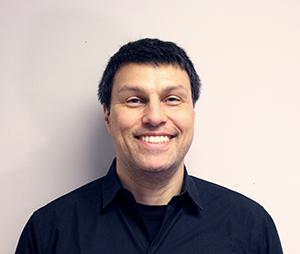Southeast Asia Spotlight - 10/4/24 - Seven Questions for Southeast Asia with Vincenzo Bollettino
Southeast Asia Spotlight - 9/26/24 - Seven Questions for Southeast Asia with Vincenzo Bollettino
Vincenzo Bollettino
Director of Program on Resilient Communities / National NGO Program on Humanitarian Leadership, Harvard Humanitarian Initiative

FOCUSING ON THE PARTS THAT PERTAIN TO SOUTHEAST ASIA, WHAT IS THE FOCUS OF YOUR ACADEMIC WORK, AND HOW DID YOU ARRIVE AT IT?
My academic work is focused on disaster preparedness, resilience, and climate change adaptation in Southeast Asia, with a particular focus on the Philippines. I developed an academic interest on these topics during an assessment mission to the Philippines immediately following Typhoon Haiyan (Yolanda) in November of 2013. The Philippines is accustomed to being impacted by typhoons several times a year, yet, Typhoon Haiyan devastated the country resulting in thousands of deaths and widespread destruction of homes and businesses, crops, and infrastructure. This was a wakeup call that clearly demonstrated how climate change could be expected to impact the country going forward.
WHAT IS THE BIGGEST UNANSWERED QUESTION IN YOUR RESEARCH?
I study the factors that contribute to disaster preparedness and resilience. The biggest unanswered question I have is how mental health generally and climate anxiety in particular relates to actions to adapt to a changing climate and directly engage in preparedness activities.
WHAT DISCIPLINE, OTHER THAN YOUR OWN, DO YOU THINK COULD ADD AN INTERESTING DIMENSION TO YOUR WORK AND WHY?
Psychology. One of the things that emerged from our nationwide survey in 2017 was that there was a strong relationship between a sense of self efficacy and actions taken to prepare for disaster. I think it is very important to understand the factors that contribute to peoples’ proactive measures to prepare for future climate hazards and positive steps people can take to adapt to climate threats. Climate change is such a vast, multidimensional challenge that it would be easy to simply throw up ones hands and say there is little I can do and so do nothing. This would be a terrible outcome and so I want to understand what we can do to support people taking positive steps to adapt.
HOW WILL THE NEXT GENERATION OF SCHOLARS LOOK AT AND STUDY THE REGION DIFFERENTLY THAN PRIOR GENERATIONS?
I believe climate change poses an existential threat to the region and scholars will look to create multi-disciplinary teams to work across countries in the region to identify the most effective interventions to mitigate and adapt to climate change.
WHAT WOULD YOU LIKE TO SEE AT HARVARD IN SUPPORT OF SOUTHEAST ASIA STUDIES?
Continued support for instruction of Southeast Asian languages, grants to support faculty and student engagement in the region for research.
WHAT IS A RECENT BOOK, FILM, OR OTHER MEDIA (ACADEMIC OR OTHERWISE) FROM OR ABOUT SOUTHEAST ASIA THAT YOU RECOMMEND?
It is not all that recent (2010) but Luis Francia’s A History of the Philippines provides a solid, sweeping history of the country.
WHAT IS THE MOST MEMORABLE SOUTHEAST ASIAN MEAL THAT YOU'VE HAD?
Lunch at the Pinto Art Museum. The Pinto is a serene, beautiful museum that seamlessly incorporates the land and nature into an eclectic art collection. This was a peaceful escape from the otherwise crowded and traffic congested streets of Manila.



